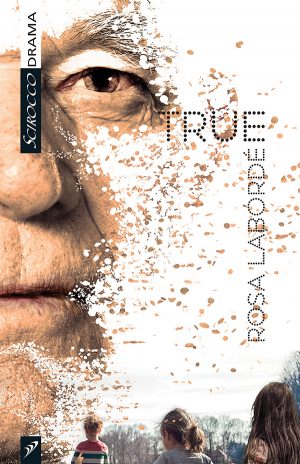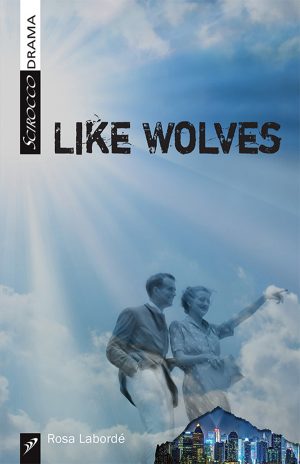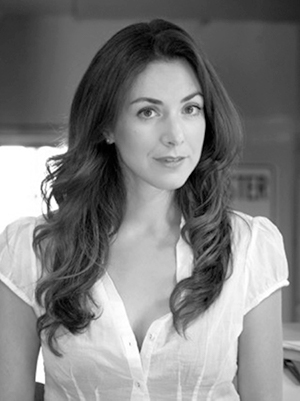Posted November 12, 2021
The Interview – Rosa Laborde
Rosa Laborde
Rosa Laborde is a critically acclaimed Chilean-Canadian playwright, screenwriter, director and actor. A finalist for Canada’s Governor General’s Literary Award, a Dora Mavor Moore award and a Canadian Screen Award, she has also received the K.M. Hunter Award for Theatre. Rosa is a graduate of both the Oxford School of Drama in England and the Canadian Film Centre and is currently playwright-in-residence at Tarragon Theatre and Aluna Theatre. Her plays have been produced throughout Canada and include: True, Like Wolves, Hush, Leo, Sugar and The Source. Rosa’s most recent television writing credits include HBO Canada’s Sensitive Skin and Five Eyes (a one-hour CBC intelligence thriller created by Paul Gross and John Krizanc) and Killing It, with creator Susan Coyne, also on CBC.
True was inspired in part by King Lear, and it is often studied in conjunction with that classic. Why is it important for students to experience contemporary “takes” on Shakespeare?
Shakespeare is literary perfection, the writing is so intricate and precise and looks so deeply into the human condition that, of course, it stands alone and deserves to be explored exactly as it is. While True was inspired by aspects of King Lear, it is loose, and not what I would call an adaptation. Still, I’m a huge fan of contemporary takes on classics because we are continuously evolving the ways in which we receive and process information, and while Shakespeare’s language spoke radically to its time, it can create a kind of distance or separation from the heart of the work for new audiences. Yet its themes are so profoundly current that the message being lost on account of how it’s presented is a real shame. I know, for instance, that Baz Luhrmann’s take on Romeo and Juliet did more for my generation’s appreciation of Shakespeare than probably any English Lit class. The great thing about contemporary takes is that it doesn’t end there, it’s an entry point that leads new or reluctant audiences to a love of Shakespeare because they can see themselves in it. It stops being some old text with period costumes and an alienating vocal cadence and becomes very alive and very now, which has the paradoxical result of making us profoundly more understanding of how things were then and how cyclical and relatable the human experience is.
True is the only play programmed at the Rendezvous with Madness Festival that’s taking place at the new Joseph Workman Theatre inside the Centre for Addiction and Mental Health in Toronto. Can you tell us a bit about this festival?
The Rendezvous with Madness Festival is the first and largest arts and mental health festival in the world. It uses art as the entry point to illuminate and investigate the realities and mythologies surrounding mental illness and addiction. This year felt especially poignant, as so many of us are feeling the emotional effects of months of isolation, income precarity, and anxiety over what the future holds, so being a part of the festival offered such a unique opportunity to come together in reflection and discussion.
We also had the privilege of inaugurating a new space. The new Joseph Workman Theatre has been built with two enormous walls of windows – there are curtains that black out the whole space for theatre and cinema showings but part of the reasoning behind the windows was to let light in, to stop keeping struggles with mental health and addiction in the dark, so we decided, in that spirit, to keep the windows visible throughout the production which, don’t get me wrong, was a challenge for lighting, but such a worthwhile one, as we felt ourselves to be a tiny piece of the landscape of our beautiful city.
What are some of the themes you explore in True?
The most prominent theme is the nature of memory and how the way we recall events can shape our current reality. This is interwoven with dementia and memory loss, alcoholism and addiction recovery, the wounds that grief and trauma leave us with, and some quantum multi-verse theory thrown in for good measure. Music is also a big character in the piece. How it uplifts and unites, but also how a melody can bring us right back to a time or place in our past.
-
 True Paperback$15.95
True Paperback$15.95 -
 Like Wolves Paperback$15.95
Like Wolves Paperback$15.95

